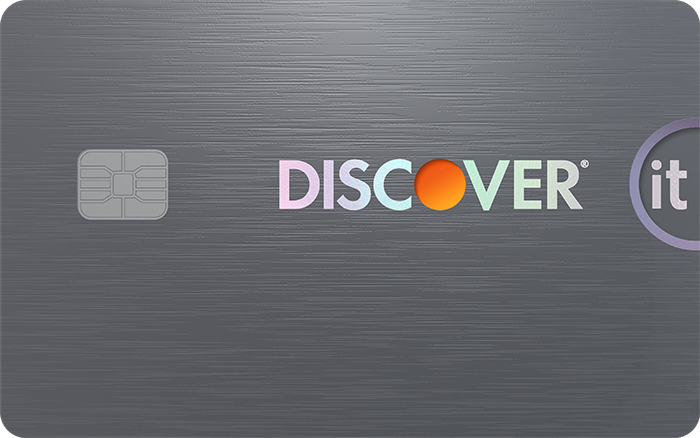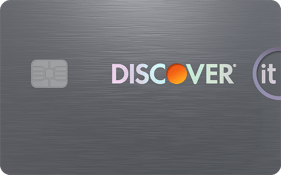Opening a credit card is an important part of rebuilding your credit after bankruptcy. The best credit cards after bankruptcy are easy to get, keep fees to a minimum, and report monthly activity to the major credit bureaus. We've compared bankruptcy credit card options to find the best ones that won't bury you in fees.
- Our team of experts reviewed over 260 credit cards
- We evaluate all credit cards across the same 4 key criteria: value, welcome experience, fees, and perks
- Our credit card ratings are never influenced by our advertising partners
- If we wouldn't recommend an offer to a close family member, we won't recommend it to you
Our aim is to maintain a balanced best-of list featuring top-scoring credit cards from reputable brands. 'Best for' category selections on this page are determined by our editors, and a single card may be recognized in multiple categories.
Best Credit Cards After Bankruptcy
- Secured credit card: Discover it® Secured Credit Card
- Cutting fees: Petal® 1 "No Annual Fee" Visa® Credit Card
- No credit check: OpenSky® Secured Visa® Credit Card
Discover it® Secured Credit Card
Great for: Secured credit card
New/Rebuilding Under(579)
Intro APR
Purchases: N/A
Balance Transfers: 10.99%, 6 months
Regular APR
27.24% Variable APR
Rewards 2% cash back at Gas Stations and Restaurants on up to $1,000 in combined purchases each quarter. 1% unlimited cash back on all other purchases - automatically
1% - 2% Cashback
Annual Fee
$0
Welcome Offer
Discover will match all the cash back you’ve earned at the end of your first year.
-
We think this card has among the highest cash back potential for a secured card with no annual fee. The key is the Unlimited Cashback Match — Discover automatically matches the cash back new cardholders earn at the end of the first year. This card could be perfect for you if you're new to credit, or rebuilding after past troubles.
Read Full Review -
- Cash back rewards
- Great welcome bonus offer
- No annual fee
- Can graduate to an unsecured card
- Minimum deposit amount
-
- No credit score required to apply. No Annual Fee.
- Your secured credit card requires a refundable security deposit, and your credit line will equal your deposit amount, starting at $200. Bank information must be provided when submitting your deposit.
- 30 points or more—that’s how much you could increase your FICO Credit Score on average after just six months of responsible use.
- Automatic reviews starting at 7 months to see if we can transition you to an unsecured line of credit and return your deposit.
- Earn 2% cash back at Gas Stations and Restaurants on up to $1,000 in combined purchases each quarter, automatically. Plus earn unlimited 1% cash back on all other purchases.
- Discover could help you reduce exposure of your personal information online by helping you remove it from select people-search sites that could sell your data. Activate by mobile app for free.
- Get an alert if we find your Social Security number on any of thousands of Dark Web sites. Activate for free.
- Terms and conditions apply.
Petal® 1 "No Annual Fee" Visa® Credit Card
Great for: Cutting fees
Fair (300-669)
Intro APR
Purchases: n/a
Balance Transfers: n/a
Regular APR
25.24 - 34.74% Variable
-
The combination of cutting fees competitors charge, along with the opportunity to earn rewards, makes this a worthwhile card to consider when working on your credit.
-
- Easy approval process
- No annual fee
- Rewards from select merchants
- No foreign transaction fee
- Limited rewards opportunities
- High APR
- Petal has added fees before
-
- No annual fee, and no security deposit required
- 2-10% cash back at select local and national merchants
- See if you’re pre-approved in minutes without impacting your credit score
- No Credit Score? No problem. Credit history isn’t required for approval
- Get an automatic credit limit increase after 6 qualifying on time monthly payments. Terms apply
- Build credit alongside hundreds of thousands of Petal card members
- Petal reports to all 3 major credit bureaus
- Pay with ease with a contactless card or on your phone using Apple Pay, Google Pay, or Samsung Pay
- Zero liability fraud coverage
- Card issued by WebBank
OpenSky® Secured Visa® Credit Card
Great for: No credit check
New/Rebuilding Under(579)
Intro APR
Purchases: N/A
Balance Transfers: N/A
Regular APR
25.64%, variable
Rewards
N/A
Annual Fee
$35
Welcome Offer
N/A
-
A good option for new to credit applicants. The fact that there's no credit check could justify the annual fee for some cardholders
Read Full Review -
- No credit check
- Flexible credit limit
- Reports payments to all three credit bureaus
- Annual fee
- No rewards
- Minimum deposit amount
-
- No credit check is great for building credit
- $35 annual fee
- $200 minimum security deposit
How soon after filing bankruptcy can you get a credit card?
You can apply for a credit card after your bankruptcy is discharged (when the bankruptcy has ended and the court has released you from liability for your debts). If proceedings are still in progress, then you need the approval of the bankruptcy court to apply for a card.
The amount of time you need to wait will depend on the type of bankruptcy you filed. Here's how long it usually takes before you can apply for a credit card after Chapter 7 and Chapter 13 bankruptcy:
| Type of bankruptcy | Average amount of time to apply for a credit card |
|---|---|
| Chapter 7 | 4-6 months |
| Chapter 13 | 3-5 years |
A Chapter 7 bankruptcy requires bankruptcy filers to liquidate assets, and it's a relatively short process. Once you've sold the assets you're required to sell, any debts that couldn't be repaid will be discharged. This type of bankruptcy generally takes four to six months to discharge after the bankruptcy filing.
A Chapter 13 bankruptcy discharge takes much longer because it requires the debtor to follow a three- to five-year repayment plan. You can only apply for a credit card during a Chapter 13 repayment plan if you have the approval of the trustee. Even if you do, the credit card company may deny your application since you're still in the bankruptcy process.
How to pick the best credit card after bankruptcy
Choosing a new credit card after bankruptcy is an important decision to get right. The goal is to find a quality card from a reputable card issuer that you can use to build credit. Here are a few tips you can follow to make this easier.
1. Get your credit score and credit report
You're already aware your credit score took a hit, but you should still know where it stands currently. This will play a part in the credit cards you qualify for. If you're looking for a free place to check your credit, Experian offers a free tool that provides your FICO® Score (the most widely used type of credit score by lenders).
Also pull your credit report from each credit bureau: Equifax, Experian, and TransUnion. Review them for any errors on your credit history that could be affecting your credit score. Your credit report will also tell you exactly when your bankruptcy was reported.
2. See if you're prequalified for any credit cards
Many credit card issuers have an online prequalification tool. After you fill out a form with some basic information, this tool lets you know if you're prequalified for any of that issuer's credit cards. That's not a sure thing, as the card issuer still needs to run a full credit check. But it means you have solid odds of getting approved for a credit card.
RELATED: How to Get Pre-Approved for Discover Credit Cards
3. Shop around for credit card options
See what credit cards fitting your situation are available from major banks, your local credit union, and any other credit card issuers you find. After bankruptcy, credit cards for bad credit are a good place to start. These are intended for consumers with lower credit scores. Card issuers often have a section with cards designed for building credit and rebuilding credit on their websites.
Another option for bad credit is secured credit cards. This type of card requires a security deposit upfront, so card issuers are more lenient on the applicants they approve because they won't need to worry about unsecured debt. With a typical secured card, the minimum security deposit is $200, but there are a few that have lower minimums. The amount of the security deposit is often equal to your card's starting credit limit.
4. Review the card issuer's rules on bankruptcies
Credit card companies all have their own restrictions on applicants with bankruptcies, and you can often find this information in the terms and conditions for their cards. If you're considering applying for a credit card, search the terms and conditions for "bankruptcy" to see if there are any rules that would lead to a denial.
For example, Citi won't approve applicants with any bankruptcy history in the last two years. So, while it has some of the best credit cards after Chapter 7 bankruptcy, you wouldn't want to apply if you're in the middle of a Chapter 13 repayment plan.
5. Focus on fees
As you compare credit cards, the No. 1 factor to look out for is fees. Specifically, it's the unavoidable fees that are problematic, such as a monthly or an annual fee. Late fees, cash advance fees, balance transfer fees, and other fees of this nature aren't a deal breaker, because those are all charges you can avoid.
What about the interest rate? A card's annual percentage rate (APR) isn't an issue if you always pay off your card's full balance, because in that case, you won't be charged interest. When you're not getting charged interest, you don't need to worry about interest rates.
The best credit cards after Chapter 7 and Chapter 13 bankruptcy are ones that charge inexpensive or preferably zero maintenance fees.
How to use a credit card after bankruptcy
If you follow good habits with your credit card, that card activity can help you rebuild your credit. Here's exactly how to use a credit card after bankruptcy so you improve your credit score:
- Make at least one purchase per month. You won't benefit much from a credit card you never use. There needs to be activity the credit card company can report to the major credit bureaus. It doesn't take much -- even a single purchase per month works.
- Only spend what you can afford to pay off. Even though you need to use your card, don't overuse it. Make sure to pay off the full balance every month. This will help you avoid interest charges and stay out of credit card debt. It's also good for your credit utilization ratio, which is your card balance compared to your credit limit. Credit utilization is a major factor in your credit score.
- Pay your credit card bill on time. Payment history is the biggest part of your credit score. Every on-time payment is a positive step for your credit. To avoid a late payment on your credit card account, consider setting up automatic payments or scheduling a monthly reminder in a calendar app.
- Ask the card issuer for an upgrade. Your first new credit card after bankruptcy likely won't have many features or a high credit line, and you may need to pay a security deposit for it. After you've had it for six to 12 months, contact the card issuer to see if you're eligible for an upgrade. Most good credit card companies will eventually let cardholders switch to a card with more features. Or, if you started with a secured card, you could graduate to an unsecured credit card and get your deposit back.
As you recover from bankruptcy, also focus on building financial security. Make a budget so you know how much you can spend each month. Also set up a savings account with an emergency fund and contribute to it regularly.
If you do that, you'll steadily become more financially stable. Plus, as you use your credit card consistently and pay its bills on time, your credit will recover. It takes time, but you'll eventually reach the point where you can qualify for the best credit cards.
Compare the best credit cards after bankruptcy
| Card | Rating | Great For |
|---|---|---|
|
Rating image, 5.00 out of 5 stars.
5.00/5
Our ratings are based on a 5 star scale.
5 stars equals Best.
4 stars equals Excellent.
3 stars equals Good.
2 stars equals Fair.
1 star equals Poor.
We want your money to work harder for you. Which is why our ratings are biased toward offers that deliver versatility while cutting out-of-pocket costs.
|
Great For: Secured credit card |
|
|
Rating image, 4.00 out of 5 stars.
4.00/5
Our ratings are based on a 5 star scale.
5 stars equals Best.
4 stars equals Excellent.
3 stars equals Good.
2 stars equals Fair.
1 star equals Poor.
We want your money to work harder for you. Which is why our ratings are biased toward offers that deliver versatility while cutting out-of-pocket costs.
|
Great For: Cutting fees |
|
|
Rating image, 3.50 out of 5 stars.
3.50/5
Our ratings are based on a 5 star scale.
5 stars equals Best.
4 stars equals Excellent.
3 stars equals Good.
2 stars equals Fair.
1 star equals Poor.
We want your money to work harder for you. Which is why our ratings are biased toward offers that deliver versatility while cutting out-of-pocket costs.
|
Great For: No credit check |
Our credit card methodology
At Motley Fool Money, we rate credit cards on a five-star scale (1 = poor, 5 = best). Our rating criteria includes rewards rates, welcome bonuses, fees, and perks like travel credits and 0% intro APR offers to evaluate our ratings.
Our highest-rated credit cards have:
- A rewards rate above 2% (or 2x points or miles) with average spending, or competitive 0% intro APR balance transfer and purchase offers
- Attainable welcome bonuses that make up for any annual fees
- Low annual fees or a balance transfer fee of 3%
- Top perks such as purchase and travel protections, no foreign transaction fees, travel credits, and status upgrades
We combine these factors with an evaluation of brand reputation and customer satisfaction to ensure you're getting the best card recommendations. Learn more about how Motley Fool Money rates credit cards.
FAQs
-
Yes, you can qualify for a credit card after Chapter 7 bankruptcy. Once the bankruptcy is discharged, it's possible to be approved for a credit card.
-
Applying for a credit card after bankruptcy can have a small impact on your credit score. Each credit application puts a hard inquiry on your credit file, and this is a factor that affects your credit. To minimize the impact, take your time choosing a credit card you qualify for so you have a good chance of being approved after only one new credit inquiry.
-
Yes, it's a good idea to get a credit card after bankruptcy so you can start rebuilding your credit. If you get a credit card, use it regularly, and make timely payments, it will help improve your credit score and create a new, more robust credit history.
We're firm believers in the Golden Rule, which is why editorial opinions are ours alone and have not been previously reviewed, approved, or endorsed by included advertisers. Motley Fool Money does not cover all offers on the market. Motley Fool Money is 100% owned and operated by The Motley Fool. Our knowledgeable team of personal finance editors and analysts are employed by The Motley Fool and held to the same set of publishing standards and editorial integrity while maintaining professional separation from the analysts and editors on other Motley Fool brands. Terms may apply to offers listed on this page.
The Motley Fool owns shares of and recommends Visa.





